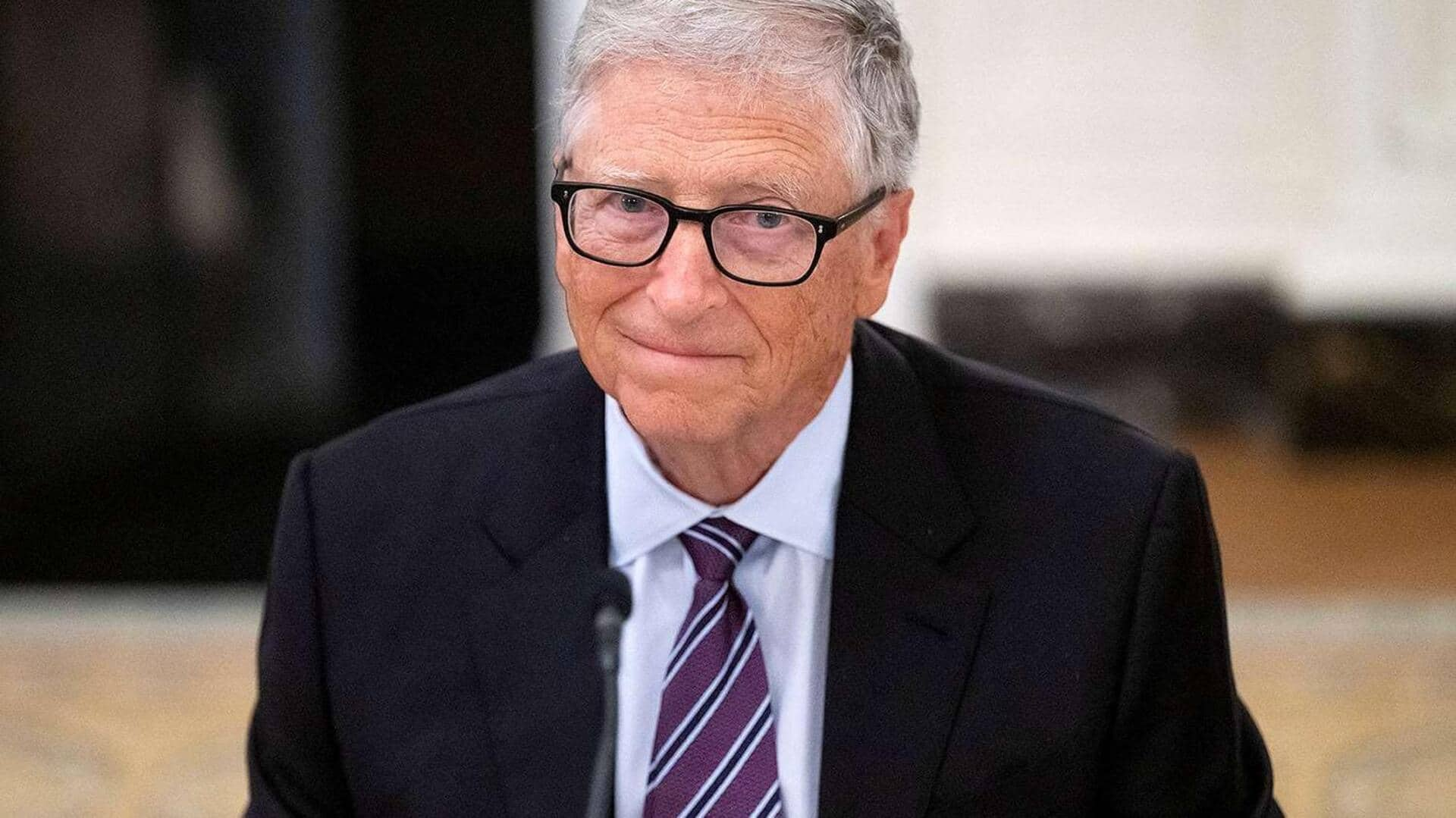
Read these nonfiction books recommended by Bill Gates
What's the story
Bill Gates, the co-founder of Microsoft and a renowned philanthropist, is known for his love of reading. He often shares his book recommendations to inspire others. His list of nonfiction books offers a glimpse into the world of science, technology, and human behavior. These selections are not just informative but also thought-provoking. They are ideal for anyone wanting to broaden their horizons.
Climate insight
'How to Avoid a Climate Disaster' by Bill Gates
In How to Avoid a Climate Disaster, Gates outlines the steps necessary to tackle climate change. He emphasizes the importance of innovation in energy and technology to reduce carbon emissions. The book provides practical solutions and highlights the role of governments and businesses in combating climate change. Gates' insights are based on his extensive research and personal commitment to environmental sustainability.
Global perspective
'Factfulness' by Hans Rosling
Factfulness by Hans Rosling offers a refreshing perspective on global development. The book debunks common misconceptions about poverty, health, and education across the world. Rosling uses data visualization techniques to present a more accurate picture of global progress. The book encourages readers to think critically about statistics and challenges preconceived notions about the world.
Human progress
'The Better Angels of Our Nature' by Steven Pinker
Steven Pinker's The Better Angels of Our Nature delves into the decline of violence over the course of human history. Pinker uses historical data to demonstrate that the world is safer than ever, contrary to popular belief. The book examines the social, political, and economic factors that have contributed to this progress. It offers a hopeful view of humanity's capacity for improvement.
Optimism in progress
'Enlightenment Now' by Steven Pinker
In Enlightenment Now, Steven Pinker argues that the principles of the Enlightenment—reason, science, humanism, and progress—have led to unprecedented advancements in human well-being. The book covers various aspects such as health care, education, and safety. It shows how they have improved over time thanks to rational thinking and scientific inquiry. Pinker's work is a testament to the power of knowledge in shaping a better world.
Human evolution
'Sapiens: A Brief History of Humankind' by Yuval Noah Harari
Yuval Noah Harari's Sapiens takes readers on an engaging journey through human history—from early hunter-gatherers to modern societies. The book examines key turning points in our evolution, such as agricultural revolutions or industrial revolutions, and their impact on our social structures and economies today. Harari's narrative style makes complex historical events accessible without oversimplifying them.